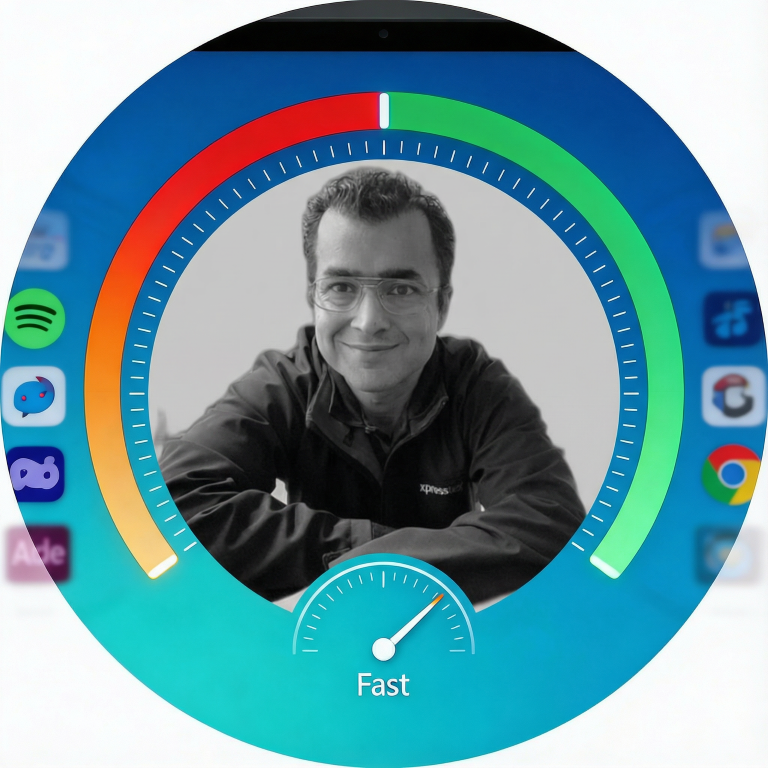
Unlock The Untold Power Of The Latest Windows For Your Business
As a Small Business Owner In Melbourne you are responsible for million things.
From managing staff and inventory to keeping your customers happy, the last thing you have time for is worrying about your IT.
But what if I told you that a seemingly small detail – the version of Windows your business is running – could be leaving you exposed to cyber-attacks, hindering your productivity, and ultimately costing you money?
It's a common scenario. You buy a computer, it comes with Windows, and you use it until it dies.
But technology moves at a lightning pace, and what was secure and efficient a few years ago might now be a liability.
Microsoft, the creator of Windows, regularly releases new versions of its operating system while simultaneously ending support for older ones.
This means no more security updates, no more bug fixes, and no more protection against the latest online threats.
For a busy business owner, this can be a recipe for disaster.
In this article, we'll break down everything you need to know about Windows versions, why using an unsupported version is a massive risk, and how to ensure your business is protected and running at peak performance.
How To Check The Version Of Your Windows Edition
Before we dive in, let's start with a simple, practical tip.
Not sure which version of Windows you're using? It's easy to find out.
- Right-click on the Start button (the little Windows icon in the bottom-left corner of your screen).
- A menu will pop up. Click on "System."
- A window will open displaying information about your computer, including the "Windows specifications." Here, you'll see the edition and version of Windows you're running.
This little trick is your first step towards taking control of your business's IT security.
Supported vs. Unsupported Windows Versions

Let's take a look at the recent history of Windows and what's safe to use in 2024.
- Windows 7 & 8: The Dinosaurs of the Digital Age
- Released in 2009 and 2012 respectively, these versions of Windows are well and truly past their use-by date. Microsoft officially ended support for Windows 7 in January 2020 and for Windows 8.1 in January 2023.
- What this means for you: If your business is still running on Windows 7 or 8, you are operating without a safety net. There are no new security updates, which means your system is a sitting duck for malware, ransomware, and other cyber threats. It's like leaving the front door of your business wide open for thieves.
- Windows 10: The Workhorse Nearing Retirement
- Windows 10 has been a reliable operating system for many since its release in 2015. However, its time in the sun is coming to an end. Microsoft has announced that it will end support for Windows 10 on October 14, 2025.
- What this means for you: While you're still receiving security updates for now, the clock is ticking. It's crucial to start planning your upgrade to Windows 11 to avoid being left in the lurch when support ends.
- Windows 11: The New Standard for Security and Productivity
- Released in 2021, Windows 11 is the latest and most secure version of the operating system. It boasts a redesigned interface, enhanced security features, and a range of new tools designed to improve productivity.
- What this means for you: Windows 11 is fully supported by Microsoft, meaning it receives regular security updates and feature enhancements. By upgrading to Windows 11, you're not just getting a new look; you're investing in the long-term security and efficiency of your business.
The Real-World Risks of Using Unsupported Windows For Your Business
So, what's the big deal about using an old version of Windows? Here are some of the tangible risks you're taking:
- Increased Vulnerability to Cyber-Attacks: Cybercriminals are constantly developing new ways to exploit vulnerabilities in software. Without security updates, your system is an easy target. A successful attack could lead to data theft, financial loss, and significant damage to your reputation.
- Compatibility Issues: As software developers create new applications, they often stop supporting older operating systems. This means you might not be able to run the latest accounting software, CRM, or other essential business tools.
- Poor Performance: Older operating systems are not optimized for modern hardware. This can lead to slow performance, frequent crashes, and a frustrating user experience for you and your staff.
- Compliance Risks: If your business handles sensitive customer data, you may be subject to data privacy regulations. Using an unsupported operating system could put you in breach of these regulations, leading to hefty fines.
The Benefits of Upgrading to Windows 11 For Your Business
Upgrading to Windows 11 isn't just about avoiding risks; it's also about unlocking a range of benefits that can help your business thrive.
- Enhanced Security: Windows 11 comes with a host of advanced security features, including improved encryption, malware protection, and a more secure boot process.
- Improved Productivity: The new interface is designed to be more intuitive and efficient, with features like Snap Layouts that make it easier to multitask.
- Better Performance: Windows 11 is optimized for modern hardware, which can lead to faster boot times, longer battery life, and a more responsive user experience.
- Access to the Latest Features: From the integrated Microsoft Teams to the new Microsoft Store, Windows 11 is packed with new features that can help you collaborate more effectively and find the tools you need to get the job done.

How to Upgrade to Windows 11 Within Your Business
Upgrading your operating system can seem like a daunting task, especially when you're busy running a business. Here's a breakdown of the process:
- Check Your Hardware Compatibility: Before you can upgrade, you need to make sure your computer meets the minimum hardware requirements for Windows 11. You can use Microsoft's PC Health Check app to do this.
- Back-Up Your Data: This is a crucial step. Before you make any major changes to your system, you should always back up your important files to an external hard drive or a cloud storage service.
- Perform the Upgrade: If your hardware is compatible, you can usually upgrade to Windows 11 through the Windows Update settings on your computer.
- Seek Professional Help: If you're not comfortable performing the upgrade yourself, or if you have multiple computers to upgrade, it's a good idea to seek professional IT support. An IT expert can ensure the process goes smoothly, minimize downtime, and make sure all your data and applications are transferred correctly.
Don't Let Your Tech Hold You Back
In today's competitive business landscape, you can't afford to be held back by outdated technology.
By ensuring your business is running on a supported version of Windows, you're not just protecting yourself from cyber threats; you're also empowering your team to be more productive and efficient.
Take a few minutes today to check your Windows version.
If you're running on Windows 7, 8, or 10, it's time to start planning your upgrade.
Your business's security, productivity, and future success depend on it.
We specialise in providing expert IT support for small local businesses just like yours.
Our team of professionals can guide you through the complex process of upgrading your system and ensure a seamless transition to the latest version of Windows.



